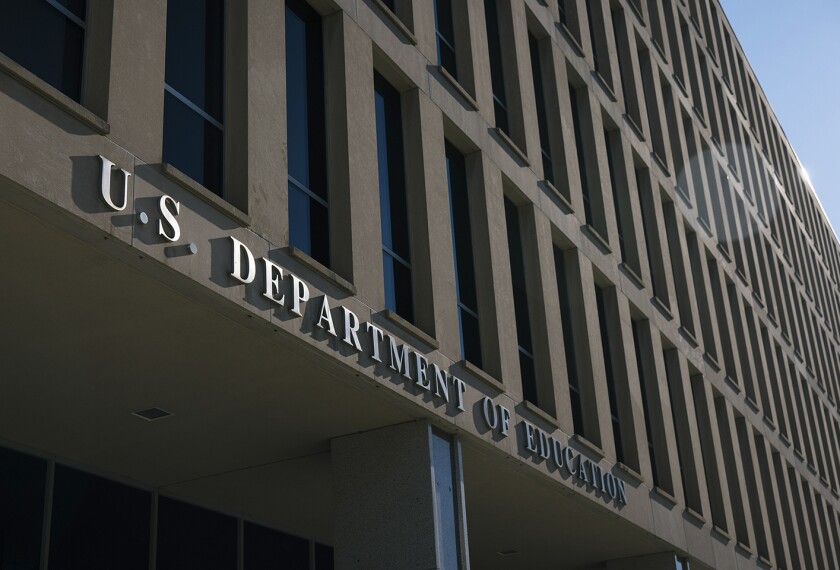A lack of federal investment has kept colleges of teacher preparation from consistently pursuing systemic and comprehensive change, the president of an umbrella group for such colleges told a congressional panel last week.
Sharon P. Robinson, the president of the Washington-based American Association of Colleges for Teacher Education, said at a House education subcommittee hearing that teacher education has changed dramatically over the past several years as a result of reforms launched by the states, universities, and the federal government. These have resulted in a stronger curriculum that helps new teachers better serve diverse students, and apply what is learned in courses to the classroom.
Still, she added, the types of changes sought by the federal government in the Higher Education Act and the No Child Left Behind Act, which call for more accountability and greater investment in professional development, have been slow to come.
Title II of the Higher Education Act was envisioned as a $300 million program during its creation in 1998, but it has been funded at less than $60 million. And only 28 percent of the federal government’s $2.9 billion investment in professional development under the NCLB law has gone toward its intended purpose, Ms. Robinson said.
The House Education and Labor Committee’s higher education subcommittee is considering changes to the two major education laws that are up for reauthorization. Panel members questioned whether the HEA and NCLB laws are working together at the federal, state and local level, and whether they are aligned with respect to teacher preparation.
“While similar in goals, it is not clear how complementary these two programs are,” said Rep. Ruben Hinojosa, D-Texas, the chairman of the higher education subcommittee.
New Ideas
Title II of the HEA gives grants to states to improve the quality of teacher education programs and to recruit teachers to serve in high-need districts and schools. Title II of the No Child Left Behind law provides grants to states to improve teacher quality and reduce class sizes.
George A. Scott, a director dealing with education issues at the Government Accountability Office, said that the reauthorization of the two laws provides Congress a chance to explore interrelationships among the goals for each.
“For example, exploring links between efforts aimed at improving teacher preparation at institutions of higher education and efforts to improve teacher quality at the school or district level could identify approaches to teacher preparation that help schools the most,” he said.
C. Emily Feistritzer, the president of the Washington-based National Center for Alternative Certification, discussed the rapid growth of such alternative routes.
She said nearly one-third of all new teachers hired are coming through alternative routes, and every state now offers alternative routes to teacher preparation.
“Alternative routes are no longer a stepchild of the system. They have become a major player,” Ms. Feistritzer said.
Teacher Pay Promoted
Teacher preparation also figured in a separate hearing by the House education committee on May 11 to examine the NCLB law’s effect so far on teacher quality.
Jarvis Sanford, the principal of the Dodge Renaissance Academy, a K-8 school in Chicago, called for teachers’ classroom performance to be tracked over time to identify the training programs that yield the best educators. The school posted strong achievement gains last year, Mr. Sanford said.
“This will help us determine which programs are really turning out great teachers and leaders,” Mr. Sanford said.
He attributed much of his school’s success to the local Academy for Urban School Leadership, which runs Dodge and places its paid teaching “residents” there, and the New York City-based New Leaders for New Schools, which trains principals through a similar program.
Witnesses also promoted new forms of teacher pay rewarding educators who raise student achievement over time and take on roles related to school success, as well as federal help for recruiting skilled teachers in shortage subjects and high-needs schools.
Several endorsed the Teacher Excellence for All Children (TEACH) bill, which would provide incentive pay to such teachers.
“This would complement existing New York City efforts to attract top-quality teachers to our high-needs schools,” Joel I. Klein, the chancellor of the 1.1 million-student system, told the panel.




